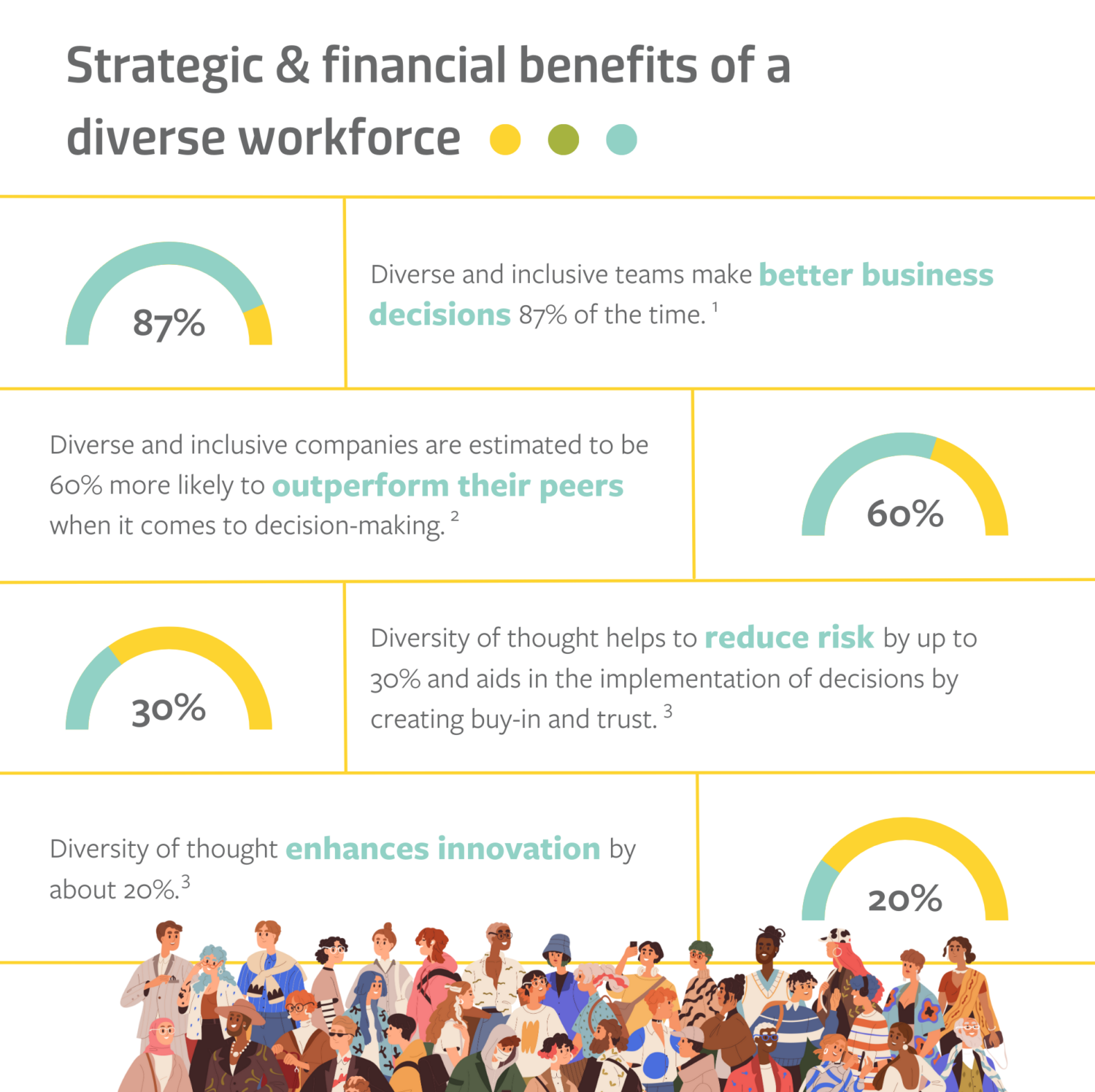The Business Implications Of Target's Reversal On DEI Efforts

Table of Contents
The Immediate Impact on Target's Brand and Finances
Target's decision to pull certain LGBTQ+-themed merchandise following a consumer backlash had immediate and significant repercussions. Understanding the impact requires analyzing both the negative publicity and the resulting financial consequences.
Negative Publicity and Consumer Boycott
The negative media coverage surrounding Target's decision was swift and intense. Conservative news outlets and social media personalities heavily criticized the company, leading to a coordinated boycott. While precise figures on lost sales are difficult to isolate from general market fluctuations, several indicators point to a negative impact.
- Significant drop in social media engagement: Target experienced a noticeable decrease in positive social media interactions, with an increase in negative comments and boycotts.
- Negative reviews and online protests: Online reviews plummeted, reflecting consumer anger and disappointment. Organized online protests further amplified the negative sentiment.
- Decline in foot traffic and online sales: Anecdotal evidence and reports suggest a decrease in both in-store and online sales during and immediately following the controversy. While Target hasn't released specific sales data attributable solely to the backlash, analysts are closely monitoring the situation.
- Stock price volatility: Target's stock price experienced fluctuations, reflecting investor concerns about the long-term impact of the controversy on the company's financial performance. This volatility underscores the financial risks associated with controversial DEI initiatives. The situation mirrors similar boycotts against other companies, demonstrating the potent impact of consumer activism.
Damage to Target's Reputation and Brand Trust
The fallout extends beyond immediate financial losses. The incident significantly damaged Target's brand image and consumer trust, particularly among its LGBTQ+ customer base and their allies. This damage has long-term implications:
- Loss of customers who valued Target's DEI stance: Many consumers who previously supported Target due to its perceived commitment to DEI felt betrayed and alienated.
- Damage to Target's image as a socially responsible corporation: The reversal casts doubt on Target's commitment to social responsibility and corporate values.
- Challenges in regaining the trust of LGBTQ+ customers and allies: Rebuilding trust with this crucial segment will require significant effort and a demonstrable commitment to inclusivity.
- Difficulty attracting and retaining diverse talent: The controversy could negatively affect Target's ability to attract and retain diverse employees who value a workplace committed to DEI principles. This could hurt Target's internal culture and future innovation.
Wider Implications for Corporate DEI Strategies
Target's experience serves as a cautionary tale for other corporations considering public-facing DEI initiatives. The incident highlights the risks and rewards inherent in such strategies.
The Risk-Reward Analysis of Public DEI Initiatives
Companies must carefully weigh the potential benefits of public DEI initiatives against the potential for financial and reputational damage.
- Balancing corporate values with market demands: Companies must find a balance between upholding their values and responding to market pressures and consumer sentiment.
- The importance of robust market research and consumer sentiment analysis: Thorough market research before launching any DEI campaign is crucial to gauge potential reactions and mitigate risks.
- The need for transparent and effective communication strategies: Clear and consistent communication can help manage expectations and build consensus.
- The potential for a more cautious approach to public DEI statements: Some companies may adopt a more cautious and less visible approach to DEI, prioritizing internal initiatives over large-scale public campaigns.
The Future of Corporate Social Responsibility (CSR)
Target's decision may significantly influence how other corporations approach CSR, particularly in the realm of DEI.
- Increased scrutiny of corporate DEI initiatives: Companies can expect greater scrutiny of their DEI initiatives from investors, consumers, and the media.
- Potential for a decline in public support for CSR programs: The backlash against Target could erode public trust in corporate CSR efforts more broadly.
- Increased focus on measuring the ROI of DEI initiatives: Companies may place greater emphasis on demonstrating the tangible business benefits of their DEI investments.
- Greater emphasis on data-driven decision-making in CSR: Data-driven approaches will be increasingly important to inform CSR strategies and minimize risks.
Conclusion
Target's reversal on its DEI efforts highlights the complex interplay between corporate social responsibility, consumer expectations, and financial performance. While DEI initiatives are essential, companies must adopt a strategic, data-driven, and carefully communicated approach to mitigate the potential for negative backlash. The long-term effects of Target's decision remain to be seen, but it underscores the importance of understanding your target audience, anticipating potential challenges, and prioritizing long-term brand health. Learn from Target's experience and develop a robust strategy for your own Target diversity and inclusion efforts – a thoughtful and measured approach is crucial for success.

Featured Posts
-
 Dragons Den Investment Strategies How To Secure Funding
May 01, 2025
Dragons Den Investment Strategies How To Secure Funding
May 01, 2025 -
 Can Ripples Xrp 15 000 Growth Make You A Millionaire Analyzing Xrps Future
May 01, 2025
Can Ripples Xrp 15 000 Growth Make You A Millionaire Analyzing Xrps Future
May 01, 2025 -
 Omni Wins Dragons Den Investment For Plant Based Dog Food
May 01, 2025
Omni Wins Dragons Den Investment For Plant Based Dog Food
May 01, 2025 -
 Eurovision History Made Irishmans Armenian Song Triumphs
May 01, 2025
Eurovision History Made Irishmans Armenian Song Triumphs
May 01, 2025 -
 Is Betting On Natural Disasters Like The La Wildfires A Sign Of The Times
May 01, 2025
Is Betting On Natural Disasters Like The La Wildfires A Sign Of The Times
May 01, 2025
